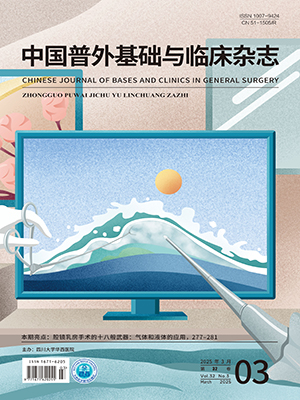| 1. |
Palmer BF. Regulation of potassium homeostasis. Clin J Am Soc Nephrol, 2015, 10(6): 1050-1060.
|
| 2. |
Pochineni V, Rondon-Berrios H. Electrolyte and acid-base disorders in the renal transplant recipient. Front Med (Lausanne), 2018, 5: 261.
|
| 3. |
Palmer BF, Clegg DJ. Physiology and pathophysiology of potassium homeostasis. Adv Physiol Educ, 2016, 40(4): 480-490.
|
| 4. |
Moore-Ede MC, Herd JA. Renal electrolyte circadian rhythms: independence from feeding and activity patterns. Am J Physiol, 1977, 232(2): F128-F135.
|
| 5. |
Ben Salem C, Badreddine A, Fathallah N, et al. Drug-induced hyperkalemia. Drug Saf, 2014, 37(9): 677-692.
|
| 6. |
Heilman RL, Mazur MJ, Reddy KS. Immunosuppression in simultaneous pancreas-kidney transplantation: progress to date. Drugs, 2010, 70(7): 793-804.
|
| 7. |
Palmer BF. Managing hyperkalemia caused by inhibitors of the renin-angiotensin-aldosterone system. N Engl J Med, 2004, 351(6): 585-592.
|
| 8. |
Kaplan B, Wang Z, Abecassis MM, et al. Frequency of hyperkalemia in recipients of simultaneous pancreas and kidney transplants with bladder drainage. Transplantation, 1996, 62(8): 1174-1175.
|
| 9. |
Solocinski K, Gumz ML. The circadian clock in the regulation of renal rhythms. J Biol Rhythms, 2015, 30(6): 470-486.
|
| 10. |
Gumz ML, Rabinowitz L. Role of circadian rhythms in potassium homeostasis. Semin Nephrol, 2013, 33(3): 229-236.
|
| 11. |
Emily C, Julius1 O, Manjula G. Hyperkalemia in the early post renal transplant period. Transplantation, 2018, 102: S597.
|
| 12. |
Rangel EB. The metabolic and toxicological considerations for immunosuppressive drugs used during pancreas transplantation. Expert Opin Drug Metab Toxicol, 2012, 8(12): 1531-1548.
|
| 13. |
Naesens M, Kuypers DR, Sarwal M. Calcineurin inhibitor nephrotoxicity. Clin J Am Soc Nephrol, 2009, 4(2): 481-508.
|
| 14. |
Terker AS, Zhang C, McCormick JA, et al. Potassium modulates electrolyte balance and blood pressure through effects on distal cell voltage and chloride. Cell Metab, 2015, 21(1): 39-50.
|
| 15. |
Ribeiro HS, Oliveira MC, Anastácio LR, et al. Prevalence and risk factors of hyperkalemia after liver transplantation. Arq Bras Cir Dig, 2018, 31(1): e1357.
|
| 16. |
Schmoyer C, Mishra S, Fulco F. Tacrolimus-induced type Ⅳ renal tubular acidosis following liver transplantation. Case Reports Hepatol, 2017, 2017: 9312481.
|
| 17. |
Sahu MK, Singh SP, Das A, et al. High blood tacrolimus and hyperkalemia in a heart transplant patient. Ann Card Anaesth, 2017, 20(2): 270-271.
|
| 18. |
Nelson A, Gilbert A, Matsumoto C, et al. Fludrocortisone for hyperkalemia management in adult small bowel transplant patients. Transplantation, 2014, 98: 867.
|
| 19. |
Higgins R, Ramaiyan K, Dasgupta T, et al. Hyponatraemia and hyperkalaemia are more frequent in renal transplant recipients treated with tacrolimus than with cyclosporin. Further evidence for differences between cyclosporin and tacrolimus nephrotoxicities. Nephrol Dial Transplant, 2004, 19(2): 444-450.
|
| 20. |
Zmarlicka M, Martin ST, Cardwell SM, et al. Tolerability of low-dose sulfamethoxazole/trimethoprim for Pneumocystis jirovecii pneumonia prophylaxis in kidney transplant recipients. Prog Transplant, 2015, 25(3): 210-216.
|
| 21. |
Velázquez H, Perazella MA, Wright FS, et al. Renal mechanism of trimethoprim-induced hyperkalemia. Ann Intern Med, 1993, 119(4): 296-301.
|
| 22. |
Mohan S, Jaitly M, Pogue VA, et al. Influence of concomitant prednisolone on trimethoprim-associated hyperkalaemia. J Antimicrob Chemother, 2009, 64(4): 850-852.
|
| 23. |
Kovesdy CP. Management of hyperkalemia: an update for the internist. Am J Med, 2015, 128(12): 1281-1287.
|
| 24. |
Day JR, Chaudhry AN, Hunt I, et al. Heparin-induced hyperkalemia after cardiac surgery. Ann Thorac Surg, 2002, 74(5): 1698-1700.
|
| 25. |
McCauley J, Murray J, Jordan M, et al. Labetalol-induced hyperkalemia in renal transplant recipients. Am J Nephrol, 2002, 22(4): 347-351.
|
| 26. |
Schlondorff D. Renal complications of nonsteroidal anti-inflammatory drugs. Kidney Int, 1993, 44(3): 643-653.
|
| 27. |
Hamrahian SM, Fülöp T. Hyperkalemia and hypertension post organ transplantation—A management challenge. Am J Med Sci, 2021, 361(1): 106-110.
|
| 28. |
Tainio J. Calcineurin inhibitor-associated electrolyte disturbances after pediatric renal transplantation: Could fludrocortisone therapy have a role? Pediatr Transplant, 2018, 22(2). doi: 10.1111/petr.13097.
|
| 29. |
Jadoul M, Ferrant A, De Plaen JF, et al. Mineralocorticoids in the management of primary adrenocortical insufficiency. J Endocrinol Invest, 1991, 14(2): 87-91.
|
| 30. |
Marfo K, Glicklich D. Fludrocortisone therapy in renal transplant recipients with persistent hyperkalemia. Case Rep Transplant, 2012, 2012: 586859.
|
| 31. |
Sivakumar V, Sriramnaveen P, Krishna C, et al. Role of fludrocortisone in the management of tacrolimus-induced hyperkalemia in a renal transplant recipient. Saudi J Kidney Dis Transpl, 2014, 25(1): 149-151.
|
| 32. |
Dick TB, Raines AA, Stinson JB, et al. Fludrocortisone is effective in the management of tacrolimus-induced hyperkalemia in liver transplant recipients. Transplant Proc, 2011, 43(7): 2664-2668.
|
| 33. |
Amador CA, Bertocchio JP, Andre-Gregoire G, et al. Deletion of mineralocorticoid receptors in smooth muscle cells blunts renal vascular resistance following acute cyclosporine administration. Kidney Int, 2016, 89(2): 354-362.
|
| 34. |
Selfridge JM, Gotoh T, Schiffhauer S, et al. Chronotherapy: intuitive, sound, founded…but not broadly applied. Drugs, 2016, 76(16): 1507-1521.
|
| 35. |
Montford JR, Linas S. How dangerous is hyperkalemia? J Am Soc Nephrol, 2017, 28(11): 3155-3165.
|
| 36. |
Luo J, Brunelli SM, Jensen DE, et al. Association between serum potassium and outcomes in patients with reduced kidney function. Clin J Am Soc Nephrol, 2016, 11(1): 90-100.
|
| 37. |
McCullough PA, Beaver TM, Bennett-Guerrero E, et al. Acute and chronic cardiovascular effects of hyperkalemia: new insights into prevention and clinical management. Rev Cardiovasc Med, 2014, 15(1): 11-23.
|
| 38. |
Ali SR, Shaheen I, Young D, et al. Fludrocortisone—a treatment for tubulopathy post-paediatric renal transplantation: A national paediatric nephrology unit experience. Pediatr Transplant, 2018, 2(2): e13134.
|




